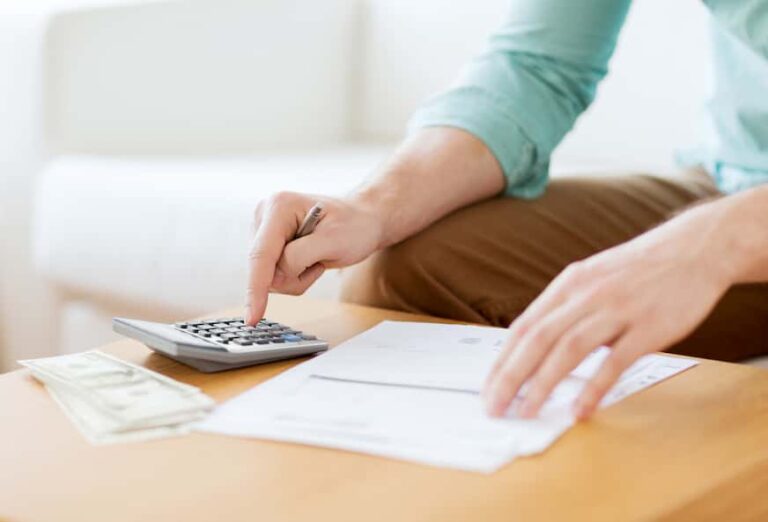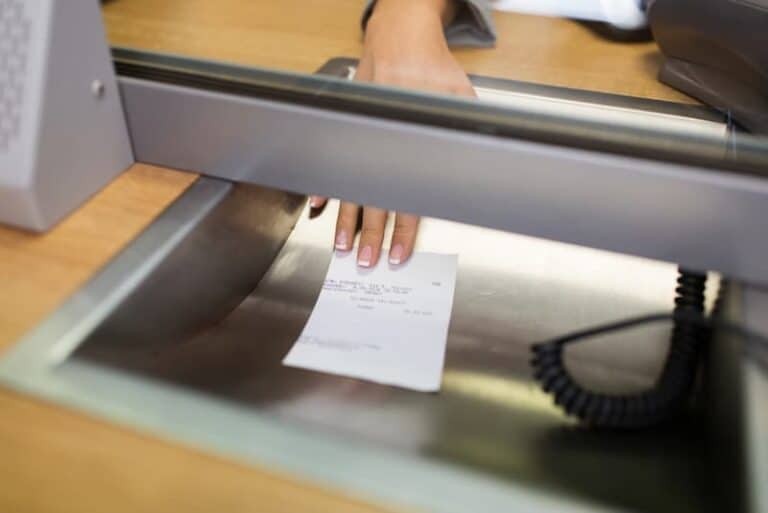Aiming to pay off your mortgage early is a great personal financial goal that can come with some questions! It takes time to get your home completely paid for, but it is something that can be worth the wait. Your monthly budget will be significantly decreased and you’ll have the peace of mind that comes with knowing you own your home free and clear!
Trust me, life after your mortgage is paid off is much better and a lot less stressful. You’ll notice a definite difference between paying your mortgage off on time and on schedule and paying it off early.
To be fair, there are conflicting opinions on whether you should pay your mortgage early, but like most financial decisions, every situation is different and personal to you. But either way, if you’re on the path to being mortgage-free, here’s what you can expect after your house is paid off, including some of the benefits of a paid off house!
What happens when your mortgage gets paid off?
When you have paid off your mortgage, your life is a lot less stressful. Instead of having to fork over a lot of money to your bank every month, you get to enjoy your home knowing that it is all yours. In particular, if you are nearing retirement, this can be a great situation to find yourself.
That’s because housing is typically one’s largest monthly expense, your retirement budget can be much more attainable without a mortgage payment.
Remember, you will still need home insurance after paying off your mortgage. And when it’s time to make that final payment, you’ll have to give your loan servicer a call to get a payoff quote. The greatest thrill of paying off your mortgage is the knowledge that you, and only you, own your home! Before you get too excited though, you will need to follow up on some steps to ensure that you have all of the documentation you need.

Be sure to communicate with your servicer throughout the process. Once you have your payoff quote and letter, you will have a better idea of what you need to do to complete the entire process. Bear in mind, that for many payoffs, your lender will require that you pay via wire transfer or similar funds. This means that you will need to cancel your automatic payment, if you have that setup, and make other arrangements for your final payment.
Additionally, don’t forget that, in your life after your mortgage is paid off, there can be fees associated with the payoff that you will want to review with your servicer. You’ll also have to go to your local government office that handles recordings and have them make a filing for your payoff. This is definitely a document that you will want to keep in a safe place! And, of course, this office may also charge you a fee for the updated filing. More on this below.
What to do after your house is paid off?
There are a few steps to take when you have paid off your house. If I were in your shoes, the first thing I’d do is pop open a bottle of champagne!
But after the celebration, you will need to take a few steps to finalize the process and get everything set up for your future. These steps include some forward planning and verifying that you have the protection you need.
1. Take a close look at your finances
Once you’re looking down the path of your life after your mortgage, you will want to double-check your credit report sooner rather than later. While your score may not change, unless you’ve paid off your mortgage with a huge lump sum payment, you will want to check that it shows that the debt has been paid.
This is also a great time to take a close look at your overall financial situation. What changes would you like to make now that you have an increased monthly cash flow? Is it time to take a look at the changes you need to make to ensure a comfortable retirement? These are just a few of the questions to consider.
You may also be interested in: Is Being Debt-Free the New Rich? (13 Pros and Cons)
2. Work with your lawyer and accountant for estate planning
It is likely that your home is your largest financial asset. Therefore, it only makes sense to work with finance and tax professionals to ensure that this asset is protected. Estate planning will also be necessary to ensure that the home is passed down in the most financially beneficial way possible.

Some people like to transfer their homes to a trust fund or other financial vehicle to help reduce tax burdens for their heirs, but again, every situation is different! If you don’t have a financial advisor or accountant currently working with you, you will want to start looking for one in the months before your payoff.
Even if you don’t consider yourself rich or wealthy, you can still benefit from these professional services. I’ve found that referrals from friends and family are a great way to find the right financial partners.
Related: 17 Brilliant Financial Planning Quotes to Inspire Your Money Makeover
3. Review your current home insurance policy
Like I mentioned above, you’re still going to need insurance. While you will now be able to vary your coverage from what your lender required, having a robust policy is always a great idea. Make sure that you sit down with your insurance agent and review your current needs and how your policy will need to be adjusted to reflect them.
Your lender may be listed on your policy. Make sure that you take the time to have them removed. And remember, again, you will need to set up your own payments for these costs that were previously handled by your loan servicer.
4. Update your automatic payments
Life after your mortgage is paid off involves quickly making time to cancel those automatic payments! Whether you paid your taxes and insurance along with your mortgage or separately, those payments will need to be updated. Your servicer previously paid your escrow payments and now you will need to set those up to pay yourself.
This can take some time, so be sure to start looking into all of these steps weeks, or a month, before your expected payoff. It may be helpful to create a checklist to keep track of all the bills that have related to your mortgage, the changes you will need to make and the subsequent paperwork! While it won’t be as much work and paper chasing as you had to deal with to purchase your house, it’s still a lot.
5. Notify your local tax collector
Your tax status or payment may not change, but your tax collector will now need to send your bill to you directly. This is something that you will want to take care of right away because it will help you avoid any payment or timing issues. Let them know that they can remove your loan servicer from your file and that they will send your tax bills to you directly.
This may all happen when you close your escrow account, or it may require that you handle the situation directly with the tax office. Either way, be sure to follow up and ensure that everything is correct and ready to go before your next payment.
6. Decide whether or not to keep your title insurance
Many people opt to cancel the insurance that they carry in their life after their mortgage is paid off, only because their lender required it. This may be a bit short-sighted and isn’t really recommended. Just because you have paid off your mortgage doesn’t mean that a title issue can’t crop up sometime in the future.

I think it’s a great idea to keep all insurance in place for a little while and make those decisions in a thoughtful manner. There’s no reason to cancel everything required by your lender and go with the bare minimum. Your insurance agent will be able to help guide you through this process and help you find the policy types and levels of coverage that are appropriate for your new situation.
What documents do I receive when I pay off my mortgage?
You will receive a lot of paperwork from your mortgage servicer when your home is paid for. Even if you’re not sure if you will need any of the documents in the future, it’s a smart idea to hold on to them.
Again, this is where a checklist can prove invaluable. You’ll have a lot of documents to keep track of during this process, and it is very important that all steps are followed and you have what you need for your future needs.
- Canceled promissory note – your note is one of the many documents that you signed at closing. Because you are no longer obligated to your lender, the note is considered paid and canceled.
- Certificate of satisfaction – this is a document that you will definitely want to follow up on and have in your records. It is obtained from your local government office, likely the County Clerk or Office of Records. Bear in mind, there may be a nominal fee for the filing of this document, say around $25 or so. Double-check your payoff statement, as this fee may have been included there. You don’t want to pay it twice!
- Deed – check with your servicer, as you would think that they’d send this document directly to you. However, sometimes they will send it to your local government office, similar to the above scenario. Your mortgage officer or someone at your bank should be able to help you track it down if you’re having trouble connecting with your servicer.
- Final mortgage statement – this is your proof of payment in full, so you definitely want to have this document on file! It should come from your servicer, and you may even be able to download it directly from their site. There should never be a charge for this form.
- Loan payoff letter – this is sort of a “belt and suspenders” situation in that you don’t really need this document. If your servicer does send it to you, go ahead and keep it with your other documentation. It can’t hurt.
The loan servicer will be your main point of contact during this process but they won’t be the only person you’ll interact with. You will also get to know your county recorder and tax assessor, just to name two new friends you may end up with!
Because servicers are often out of town and are handling a number of different accounts, they can be difficult to reach. If you find your servicer unresponsive, you can always reach out to your bank or loan officer for assistance. They can help get the ball rolling and prompt the servicer to, hopefully, get you the information and documentation you need.
How do I get my deeds after paying off my mortgage?
Your bank’s loan servicer currently holds the deed to your property. Once you have fulfilled your financial obligation, you should receive the deed along with a host of other documents and forms. If this does not occur, contact your Mortgage Officer immediately if you are unable to connect with the servicer.
It is possible that, once you hit your life after your mortgage, the servicer will send the deed to the government office where it was first registered. This is a document that is worth the red tape, time, and annoyance in tracking down. Don’t just make a call and forget about it. You need to have this important document for your files!
Do you get money back after paying off your mortgage?
Typically, the only time that you will receive money back from your lender is because of timing. For example, if you make your final payment early, you may receive a small payment due to the way your interest was calculated. This could also occur when you are reimbursed for overpayment of fees.
Because you will need to request a payoff quote from your loan servicer, it is not highly likely that you will receive money back unless you have overpaid the required amount.

Similarly, you will be able to receive your escrow funds. I don’t really consider this “getting money” as the fund consists of money that you’ve paid each month. If there is a surplus after the regular payments are made, you will receive a check for that amount. This is a step that can fall through the cracks, so be sure to follow up!
What are the psychological benefits of paying off your mortgage?
The benefits of a paid off house are innumerable – after all, there’s a reason why working to become debt-free is one of the main financial tips of the day (or week or year) you often hear. The main advantage is the excess income in your monthly cash flow. Even if you don’t manage to have your house paid off by 45, owning your home free and clear is a great psychological boon, no matter your age!
- Reduced stress from being debt-free – Maybe because of our Puritanical roots, there is a pervasive belief that debt is “bad” and something to avoid. While this may or may not be true, you will likely feel some relief and satisfaction once your mortgage is paid off. In fact, you may even feel a bit smug!
- Pride of ownership – Now that your house is yours and only yours, you can expect greater self-confidence and a stronger feeling of pride in your home. This can help you to keep your house well-maintained.
- Feeling of commitment to better habits – Once you know the joys of paying off a significant debt, you’ll find yourself in the position where you realize that you really can implement better financial habits in your life. For instance, you may suddenly see how possible it is for you to have better spending behaviors and strive for financial freedom.
- Sense of freedom – The fact that you now have a big chunk of each paycheck available to spend on other things is a great feeling. Sure, it may be going towards your other debts, but you could also choose to spend it on yourself, like that dream holiday you’ve been waiting for, or on something else you’ve been dying to do – even if that’s just getting that leaky shower finally fixed!
- New options become available – A lot of people find themselves stuck in situations that they don’t want to be in because financial commitments keep them there. This definitely includes having a mortgage to pay off as, for example, it makes it hard to quit a job you don’t like when you have house repayments hanging over your head. However, in life after your mortgage is paid off, you’re suddenly a lot freer. Don’t want to work anymore? Or do you want to study for a new career track or even start your own business? Now it’s much more likely you can live without your existing job!
- Satisfaction at your achievement – There’s no question about it: one of the main benefits of a paid off house is the fact that you did it! You’re fully entitled for your life after your mortgage is paid off to come with a side of smug as it truly is a major achievement. And you have every right for that satisfaction in yourself to shine through!
Are there any disadvantages to paying off your mortgage?
When it comes to paying off your mortgage over the scheduled amortization table, it’s really a no-brainer. You need to make your payments as agreed. Some people, however, like to pay extra each month in the hopes of paying their mortgage off early. You may be surprised to learn that a number of advisors think that paying off your mortgage early is a less than an ideal personal financial plan. Here’s why:
- It’s an illiquid investment – If you have a rainy day fund that you’ve put into rather than paying extra on your mortgage, you will be in a better financial situation should an emergency arise. Accessing the equity in your home can take weeks, if not months, and re-financing a home that is already paid for can incur significant fees and costs.
- Mortgage interest is a significant tax deduction for many people – wWthout a monthly mortgage interest payment, most people will only qualify for the standard deduction when it comes time to file their taxes. Because of this, you will end up paying higher taxes during your prime earning years. Your tax advisor can help you run the calculations that will help you determine if paying off your mortgage early is the right step for your situation.
- Investing in the stock market, or a retirement fund, can give you a larger return – Owning a home is a great hedge against inflation, but it’s not typically an investment that delivers a significant return. You may be better off putting your excess cash each month into a stock portfolio or retirement fund.
Again, everyone’s situation is different, especially when it comes to your life after your mortgage is paid off, and if paying off your mortgage early is something that you want to do, that’s fine. You will need to direct your servicer to apply any excess payments to your principal.
It’s also a good idea to double-check your monthly statements and make sure that the excess funds are going where you want them to go.
So, sure, there are a bunch of things to consider when you’re approaching life after your mortgage is paid off. But if you’re even in the position of just thinking about doing this, congratulations – it’s a major financial achievement, no matter how you decide to proceed!





